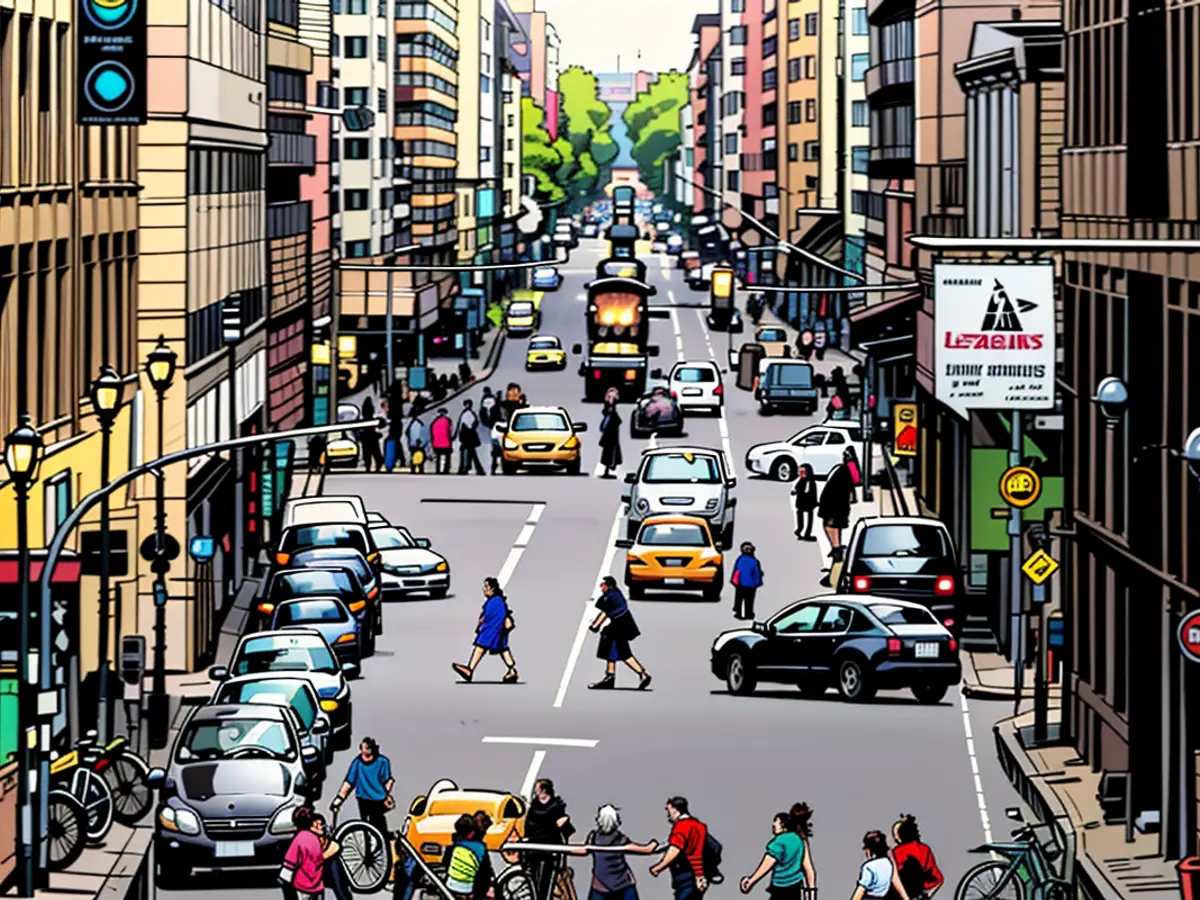Cars and citizens' money: FDP's controversial plans cause new "lightning" dispute
Dürr initiates push for reduction in citizen's allowance** with inflation drop exceeding expectations. "Currently, the citizen's allowance is 14 to 20 euros too high per month," he told the "Bild" newspaper on Monday. He wants to "adjust it downwards."
SPD and Greens sharply criticized the initiative. "I don't agree with constantly providing uncertainty with completely unrefined ideas far from reality," said Martin Rosemann, labor market spokesman for the SPD parliamentary group. He urged the Liberals to "finally assume their role as part of a government coalition after almost three years."
Green parliamentary vice-president Andreas Audretsch pointed out that families with children are particularly dependent on the citizen's allowance. "We will not expose them to the whims of wild and false FDP fantasies," Audretsch told the AFP news agency. Left party leader Janine Wissler accused the FDP of playing people against each other. The FDP wants "to take money away from the poorest."
The head of the Paritätischer Gesamtverband, Joachim Rock, explained that the citizen's allowance is "already too low today to combat poverty." Those who speak of cuts want to increase inequality and promote social division. CDU politician Gitta Connemann called the initiative a "transparent election campaign maneuver" with reference to the upcoming state elections in East Germany. The problem with the citizen's allowance is not the basic rate, but the unlimited assumption of costs, for example for housing and heating, she said to the "Welt" TV station.
The FDP's plan to promote car traffic in cities also met with rejection. In a plan presented on Monday, the FDP is calling for more free parking in city centers or, alternatively, a nationwide "flat-rate parking." Fewer pedestrian zones and bike lanes are to be set up to give cars more space in cities. The rural area is to be strengthened by better connection to the road network.
The FDP stressed that the initiative is "not a pro-car campaign." It is about "freedom of choice in mobility," said Brandenburg's party leader Zyon Braun. This also includes the car. The FDP will not participate in the "culture war against the car," as many people depend on it. General Secretary Bijan Djir-Sarai said there is "no good and no bad mobility."
The Greens criticized the plans sharply. "Putting cars against pedestrians is not sensible," said Green parliamentary vice-president Andreas Audretsch to AFP. "It is a dangerous misconception that more car traffic creates more economic strength in city centers," warned the Green mayor of Hannover, Belit Onay. Left party leader Wissler criticized that the concept completely ignores the reality of many cities.
The ADAC praised certain FDP proposals, such as supervised driving from the age of 16. However, other demands, like the call for fewer bike lanes, faced criticism. "On the contrary, bike lanes make a good contribution to separating traffic more and thus increasing the safety of all road users," said an ADAC spokesperson to AFP. Attraction effects for cars should be "avoided to prevent exacerbating existing traffic problems."
The FDP's proposal for more free parking in city centers or a nationwide "flat-rate parking" could potentially impact other vehicles using city streets. It's important to consider the impact on public transportation and cycling infrastructure, such as pedestrian zones and bike lanes.
Despite the FDP's claims that their initiatives are not pro-car campaigns, some of their proposals, like reducing bike lanes, could negatively affect vehicles other than cars. It's crucial to balance the needs of all road users to ensure safety and efficiency in urban environments.







